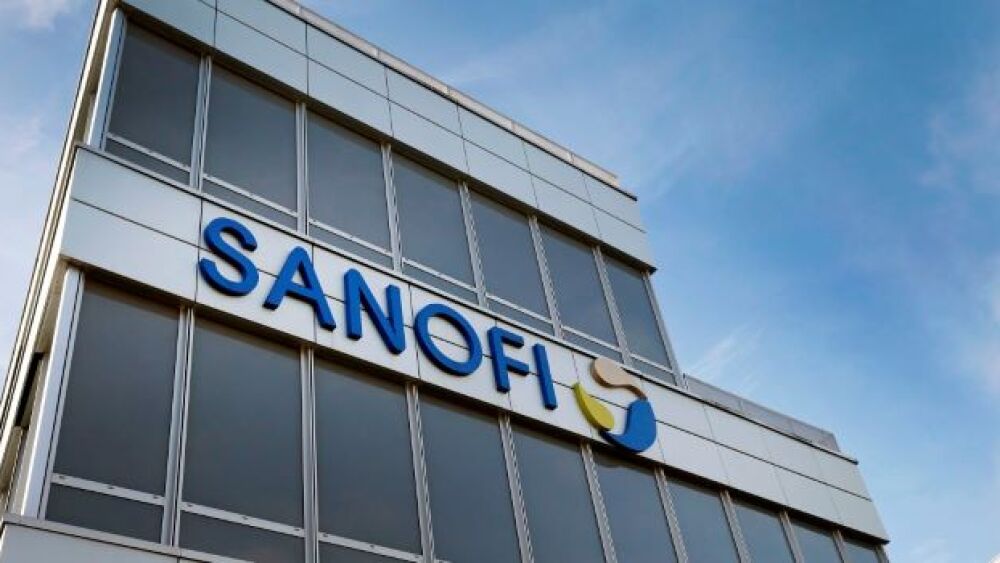TrialSpark and Sanofi announced a new partnership to expedite drug development for areas with high unmet needs by licensing or acquiring six mid-to-late-stage drug candidates.
Chesnot/Getty Images
TrialSpark and Sanofi inked a three-year partnership to expedite drug development for areas with high unmet needs through the licensing or acquisition of six mid-to-late-stage drug candidates.
New York-based TrialSpark and Sanofi aim to secure up to six best-in-class Phase II and Phase III drug candidates and develop them for diseases with high unmet needs. TrialSpark noted the deal harnesses its innovative clinical development program, which includes behavioral intervention and digital technologies, in order to deliver better outcomes for patients in need.
The partnership was announced Tuesday, but the two companies noted work on this endeavor began in September. The companies did not disclose much about the partnership, only noting they will jointly pursue the six drug candidates together.
The companies did not disclose any financial details, nor did they reveal what disease areas they aim to take on through the collaboration. TrialSpark’s own areas of interest include rheumatology, dermatology, CNS and cardiometabolic diseases.
Although financing was not included in the announcement, TrialSpark raised $156 million in a Series C financing round last year. When that was announced, the company noted those funds were earmarked for the acquisition or licensing of clinical-stage assets. The funds were also tagged for potential investments in other pharma companies that have promising candidates.
The Latest in a String of Collaborations
TrialSpark’s business model includes the acquisition of assets considered undervalued by larger pharma and biotech companies. TrialSpark in-licenses and co-develops drug programs either in-house or through joint ventures and new companies launch.
Benjamine Liu, TrialSpark’s co-founder and chief executive officer, told BioSpace that we live in a world where there are more good drugs capable of being developed than are actually in the clinic. That leaves numerous assets available for potential licensing. He did not disclose strategies for this partnership with Sanofi but he noted that the assets targeted for licensing would be within the core therapeutic areas for both companies. But, he explained they are looking for mid- to late-stage assets that are best-in-class or first-in-class programs.
Benjamine Liu, TrialSpark’s co-founder and chief executive officer, told BioSpace that we live in a world where there are more good drugs capable of being developed than are actually in the clinic. That leaves numerous assets available for potential licensing. He did not disclose strategies for this partnership with Sanofi but he noted that the assets targeted for licensing would be within the core therapeutic areas for both companies. But, he explained they are looking for mid- to late-stage assets that are best-in-class or first-in-class programs.
The company’s model was on display earlier this year when TrialSpark licensed sprifermin, a potential first-in-class disease-modifying recombinant form of human fibroblast growth factor 18, from Merck KGaA. Sprifermin is being assessed as a potential treatment for osteoarthritis.
The Germany-based Merck KGaA had taken the drug through mid-stage development, and TrialSpark intended to build on that with a Phase IIb and Phase III trial. In addition to the licensing, TrialSpark formed a new company, High Line Bio, to develop the drug.
In order to rapidly advance drugs through the clinic, TrialSpark employs a ‘hub-and-spoke’ approach. The method aims to improve patient enrollment through establishing relationships with physicians and private practices in areas where trials are being conducted. That increases patient and physician access to research, the company claims.
Combined with comprehensive trial management, that approach allows clinical studies to initiate at a faster pace, which speeds up the timeline for top-line data.
“We have the ability to run clinical trials faster and more efficiently. We are an innovative, tech-enabled partner who can speed up the clinical trial process,” Liu said.
TrialSpark and Sanofi are no strangers. Last year, Sanofi and TrialSpark partnered to increase the speed and efficiency of clinical trials for potential treatments for chronic obstructive pulmonary disease. Sanofi tapped into TrialSpark’s holistic approach to clinical trials that accelerate patient recruitment and enrollment while improving retention.
Additionally, TrialSpark’s approach to recruitment was designed to increase minority participation in the studies, which is essential since many Hispanic and African Americans are challenged by COPD but have not historically been included in clinical research.





